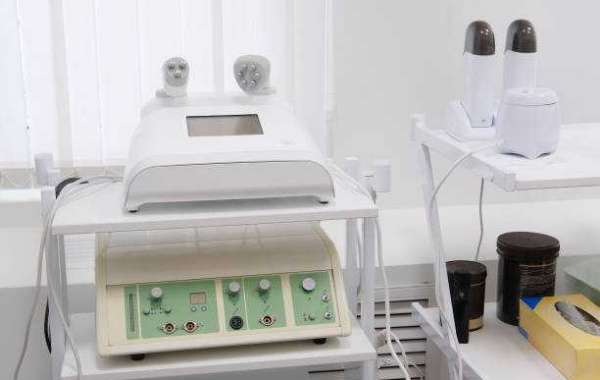Corporate travel is an essential aspect of modern business operations. Whether for client meetings, conferences, or team-building events, companies invest significantly in travel to drive growth and maintain competitive advantages.
Effective corporate travel management is crucial to ensure a smooth, cost-effective, and productive experience for both the company and its travelers.
This guide outlines key strategies for corporate travel management success, integrating essential topics such as corporate flight booking benefits, hotel tips, premium economy vs. business class decisions, and travel risk management.
The Importance of Corporate Travel Management
Corporate travel management involves planning, organizing, and overseeing business travel activities to optimize time, costs, and convenience. With the right strategies, companies can achieve the following:
Cost Savings: Effective negotiation and partnerships with airlines, hotels, and car rental companies.
Efficiency: Streamlined booking processes and reduced administrative tasks.
Traveler Satisfaction: Enhanced experiences through personalized services and support.
Risk Mitigation: Ensuring employee safety and addressing travel-related risks proactively.
Corporate Flight Booking Benefits
Flight bookings are often the largest expense in corporate travel. Leveraging corporate flight booking strategies can yield significant advantages:
Negotiated Rates: Companies can access discounted fares through volume-based agreements with airlines.
Flexibility: Corporate accounts often allow for flexible bookings, reducing penalties for changes or cancellations.
Priority Services: Business travelers may enjoy priority boarding, seat upgrades, or expedited check-in processes.
Data Insights: Tracking travel patterns helps companies refine their travel policies and identify cost-saving opportunities.
Hotel Tips for Corporate Travelers
Accommodation is another critical aspect of business travel. Follow these tips to ensure a seamless stay:
Corporate Rates: Partner with hotel chains to secure corporate discounts.
Proximity Matters: Choose hotels close to meeting venues or city centers to reduce commuting time.
Loyalty Programs: Enroll in hotel rewards programs to earn points that can be redeemed for future stays.
Amenities Check: Ensure the hotel offers essential amenities like free Wi-Fi, business centers, and early check-in options.
Reviews and Ratings: Use trusted platforms to assess the quality and reliability of potential accommodations.
Premium Economy vs Business Class: Making the Right Choice
Choosing between premium economy and business class can significantly impact travel budgets and traveler comfort. Here's a comparison to help:
Feature | Premium Economy | Business Class |
Cost | More affordable than business class | Significantly higher cost |
Seating Comfort | Reclining seats with more legroom | Fully flat beds and superior seating comfort |
Food and Beverage | Enhanced meal options | Gourmet dining and premium beverage selection |
Priority Services | Limited priority boarding | Comprehensive priority services |
Ideal For | Shorter or budget-conscious trips | Long-haul or high-stakes travel |
Recommendation: Evaluate trip length, budget, and traveler preferences when choosing. For example, the business class may be ideal for long-haul flights, while premium economy is sufficient for shorter trips.
Travel Risk Management: Ensuring Traveler Safety
Risk management is a non-negotiable aspect of corporate travel. Companies must prioritize employee safety and address potential risks proactively:
Pre-Trip Planning:
Research travel destinations for potential risks (e.g., political unrest, natural disasters).
Provide employees with emergency contact numbers and travel insurance.
Health Precautions:
Ensure vaccinations and medical supplies are up-to-date.
Share COVID-19 or other health-related travel advisories.
Crisis Management Protocols:
Establish clear protocols for emergencies, including evacuation procedures.
Use travel management software to track employee locations in real time.
Communication:
Maintain regular communication with travelers via apps or messaging platforms.
Ensure employees know how to access support during crises.
Leveraging Technology in Corporate Travel Management
Modern technology plays a pivotal role in enhancing corporate travel management. Here are some tools to consider:
Travel Management Software: Simplify bookings, track expenses, and monitor traveler locations.
Expense Management Tools: Automate expense reporting and reimbursement processes.
Mobile Apps: Provide travelers with itineraries, updates, and support at their fingertips.
Data Analytics: Use analytics to identify trends, optimize budgets, and refine travel policies.
Best Practices for Corporate Travel Management
Develop a Comprehensive Travel Policy: Clearly outline rules, budgets, and preferred vendors.
Provide Training: Educate employees on travel policies, safety protocols, and booking platforms.
Regularly Review Policies: Adapt to changes in the travel industry and employee needs.
Encourage Feedback: Gather traveler feedback to identify pain points and improve experiences.
Partner with Experts: Consider working with a corporate travel management company for specialized support.
Conclusion
Corporate travel management is a multifaceted process that requires careful planning, strategic partnerships, and a focus on traveler safety and satisfaction.
By leveraging the benefits of corporate flight booking, making informed decisions between premium economy and business class, and adopting risk management strategies, companies can create a seamless travel experience.
Investing in technology and adhering to best practices will ensure that corporate travel continues to drive success in today’s competitive business environment.










